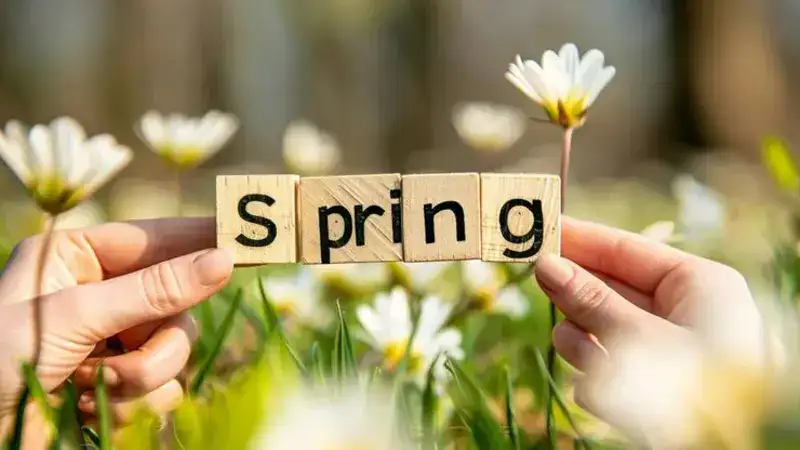When writing, you may wonder about the rules of capitalization, especially when it comes to the names of seasons. One of the most common questions is, “Is ‘spring’ capitalized?” Understanding the rules for when and when not to capitalize “spring” can help you improve your grammar and writing style. In this comprehensive guide, we’ll explore the capitalization rules for “spring” and other seasons, helping you gain clarity and confidence in your writing.
What is Capitalization?
Capitalization involves making the first letter of a word uppercase, a basic yet essential aspect of grammar. Typically, proper nouns (names of people, places, and things) are capitalized, while common nouns are not. Capitalization plays a significant role in clarifying meaning and context, making your writing more professional. Knowing when to capitalize words is key to avoiding common errors, and this applies when discussing the four seasons, including “spring.” Contact us for more information.
The Four Seasons: Spring, Summer, Fall, and Winter
Spring is one of the four seasons, alongside summer, fall (or autumn), and winter. These terms are considered common nouns in most contexts. Common nouns refer to general things, people, or places, which is why the names of seasons are typically not capitalized. This rule contrasts with the capitalization of proper nouns like “New York” or “President.” Let’s explore the capitalization rules for each season and how they apply to “spring.”
Example:
- Correct: I love spring flowers.
- Incorrect: I love Spring flowers.
In the correct example, “spring” is treated as a regular noun, and therefore remains lowercase. You should only capitalize “spring” when it appears at the start of a sentence or in specific circumstances, which we’ll dive into in the following sections.
Why “Spring” is a Common Noun
“Spring” represents a general period of time during the year, making it a common noun. Common nouns are only capitalized when they start a sentence. For instance, words like “city,” “river,” or “season” are not capitalized unless they refer to specific names or appear at the beginning of a sentence. This same rule applies to “spring.”
Many writers mistakenly capitalize “spring” because they assume all important words deserve capitalization. However, this is not the case with the seasons, which function as general descriptors, not proper nouns. As a general rule, treat “spring” the same way you would treat words like “winter” or “summer” — lowercase in most cases.
Capitalizing “is spring capitalized” at the Beginning of a Sentence
A simple yet crucial rule of grammar is that the first word of any sentence must always be capitalized, regardless of its status as a common or proper noun. This rule applies to all words, including seasons. Therefore, when “spring” starts a sentence, you should capitalize it.
Example:
- Correct: Spring is my favorite season.
- Correct: Summer follows right after spring.
In the first example, “spring” is capitalized because it starts the sentence. This rule applies to all seasons and most other words in the English language. In contrast, when “spring” appears later in a sentence, it remains lowercase unless it’s part of a proper noun, as we’ll explore in the next sections.
Exceptions to the Rule
While “spring” is typically lowercase, there are notable exceptions where it should be capitalized. These exceptions often involve formal titles, event names, or instances where “spring” is part of a proper noun. If “spring” is part of a specific event or name, such as “Spring Festival” or “Spring Break,” it must be capitalized.
Let’s take a closer look at these exceptions:
Examples:
- Spring Break 2024
- The Annual Spring Festival
- The Spring Fling Dance
In these cases, “spring” is part of a title or event, which makes it a proper noun. Therefore, it should be capitalized just like any other official name or event. Proper nouns are always capitalized, and this rule holds true even for words that would normally be lowercase, like the names of seasons.
Capitalization in Titles and Headings
When using “spring” in a title or heading, different capitalization rules may apply, depending on the style guide you follow. In English, title case is commonly used for headlines, where all major words are capitalized. Major words include nouns, verbs, adjectives, and adverbs. Under title case rules, “spring” would be capitalized if it appears in a title.
Example:
- “The Beauty of Spring in Full Bloom”
- “Exploring the Wonders of Spring”
Notice how “spring” is capitalized in these titles. Title case requires the capitalization of all key words, except for articles (like “the”), conjunctions (like “and”), and short prepositions (like “in”). If you’re writing in sentence case, only the first word and any proper nouns are capitalized.
Specific Events or Holidays that Include “is spring capitalized”
In some cases, “spring” becomes part of the name of an official event or holiday, requiring capitalization. For instance, “Spring Equinox” or “Spring Break” refers to specific, named events, and in such contexts, you must capitalize “spring.”
Examples:
- Correct: I can’t wait for Spring Break this year.
- Correct: The Spring Equinox marks the beginning of the season.
In these examples, “spring” is part of the formal name of an event. Since proper nouns are always capitalized, you should treat these instances of “spring” as such. Always pay attention to context when deciding whether to capitalize “spring.”
Avoiding Common Mistakes with Capitalization
Even experienced writers sometimes struggle with capitalization rules, especially when it comes to seasons. One of the most frequent errors is over-capitalizing the names of seasons. While “spring” might feel important enough to capitalize, it doesn’t need to be unless it meets the criteria we’ve discussed, such as starting a sentence or being part of a proper noun.
Common Mistakes:
- Incorrect: We’re planning a trip in the Spring.
- Correct: We’re planning a trip in the spring.
Avoid over-capitalizing seasons. Stick to the rule that unless the season is part of a proper noun or title, it should remain lowercase. If in doubt, ask yourself if “spring” is acting as a general noun or as part of a specific event or title.
Seasonal Capitalization in Different Languages
English isn’t the only language that deals with capitalization rules for seasons, but it has its own unique approach. In other languages, capitalization rules may vary. For example, in German, nouns are always capitalized, so the seasons would be written as “Frühling” (Spring), “Sommer” (Summer), “Herbst” (Autumn), and “Winter” (Winter).
This difference can confuse bilingual writers who may default to their native language’s grammar rules. Always remember that in English, the names of seasons are not typically capitalized, except in the specific cases outlined earlier.
Capitalization Rules in Academic Writing
Academic writing often adheres to strict style guides, such as the APA, MLA, or Chicago Manual of Style. These guides generally agree on the capitalization of seasons. In both MLA and APA, “spring” should not be capitalized unless it is part of a title or proper noun. This uniformity across style guides means you don’t need to worry about differing rules when writing essays or research papers.
However, always check your institution’s specific guidelines, as some academic institutions may have their own preferences when it comes to capitalization in formal writing. In most cases, though, the general rule still applies: lowercase “spring” unless it’s in a title or proper noun.
SEO Benefits of Correct Capitalization
Correct capitalization not only makes your writing clearer and more professional, but it also plays a role in search engine optimization (SEO). Search engines like Google pay attention to the way words are written, including capitalization. While capitalization alone won’t make or break your SEO strategy, using correct grammar and formatting can improve user experience, which can indirectly boost your rankings.
For instance, writing “Spring Break” instead of “spring break” when discussing the official event ensures your content aligns with what users are searching for. Proper capitalization helps search engines correctly identify the focus of your content, which can improve your page’s relevance for certain keywords.
Is spring capitalized when in Doubt, Check a Style Guide
If you’re ever unsure about whether to capitalize “spring” or any other word, consulting a reliable style guide can clear things up. Commonly used style guides like APA, MLA, and Chicago Manual of Style all provide detailed rules on capitalization. They generally agree that seasons are not capitalized unless they’re part of a proper noun or title. Following these guidelines ensures that your writing adheres to standard conventions, helping you avoid unnecessary errors.
Conclusion: When to Capitalize “is spring capitalized”
Knowing when to capitalize “spring” comes down to a few simple rules. As a general guideline, do not capitalize “spring” unless:
- It starts a sentence.
- It is part of a proper noun or specific event (like “Spring Break”).
- You are using title case for a headline or title.
By mastering these basic rules, you can avoid common capitalization mistakes and enhance the clarity and professionalism of your writing. Whether you’re crafting an academic paper, blog post, or casual email, knowing when to capitalize “spring” will help you write more effectively and confidently.


Can you be more specific about the content of your article? After reading it, I still have some doubts. Hope you can help me.
Can you be more specific about the content of your article? After reading it, I still have some doubts. Hope you can help me.
I don’t think the title of your article matches the content lol. Just kidding, mainly because I had some doubts after reading the article.
Your point of view caught my eye and was very interesting. Thanks. I have a question for you.
Your point of view caught my eye and was very interesting. Thanks. I have a question for you. https://accounts.binance.com/en-ZA/register?ref=JHQQKNKN